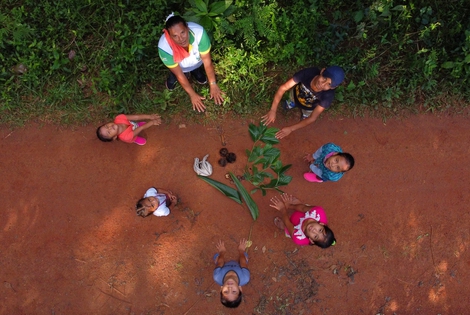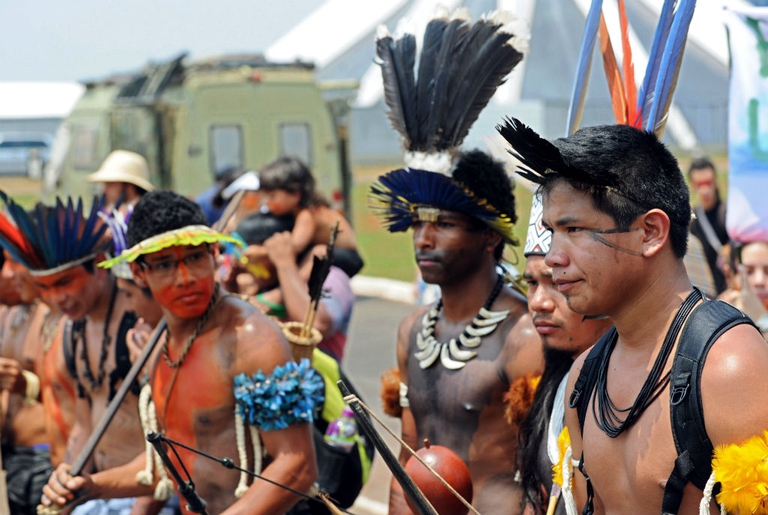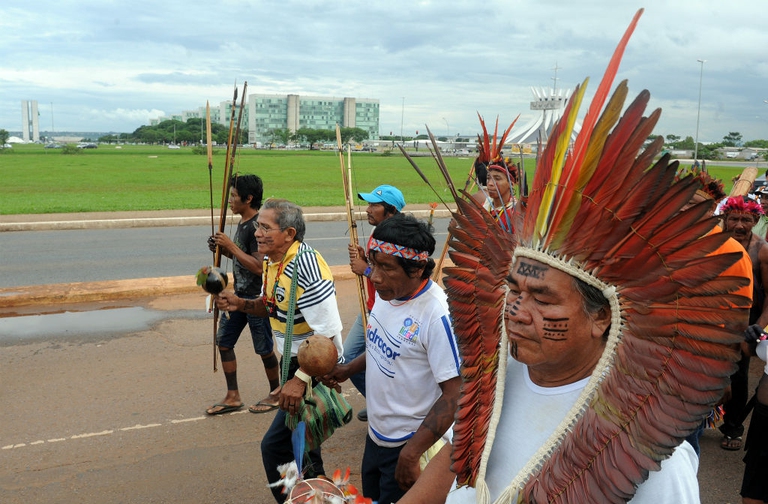
The Amazon became an alternative classroom during the pandemic. Now, the educational forest in Batraja, Bolivia, lives on to teach children and adults the value of nature.
Attacks on indigenous people by armed gunmen working for ranchers continue: a slow genocide, the result of the occupation of indigenous ancestral lands.
A group of gunmen attacked a Guaraní Kaiowa community, in southern Brazil, killing a man and injuring at least five people, including a child. The association Survival, which received news of the umpteenth violent attack to the indigenous tribe on 14 June, revealed this in a press release.
“We’re witnessing a sustained and brutal attack on the Guarani, and its intensity is increasing”, Director General of Survival, Stephen Corry, said. “Powerful people in Brazil are trying to silence the Guarani, terrorizing them until they give up on their land claim. But the Guarani still don’t give up. They know they risk death for wanting to return to their ancestral homelands, but the alternative is so dire that they have no choice but to face the gunmen and their bullets. Brazil’s interim government has to do more to end this wave of violence. It’s leading to murder”.
It seems that attacks and intimidations have increased since the interim Government took office due to Brazil President Dilma Rousseff’s impeachment. The outgoing administration indeed recognised a vast region to the indigenous tribes.
“A slow genocide is taking place. There is a war being waged against us. We are scared. They kill our leaders, hide their bodies, intimidate and threaten us. We are fighting always for our land”, one of the Guaraní leaders stated during his visit to Europe last month.
Today in Brazil there are just 51,000 Guaraní people living in 7 different states. They make up the country’s biggest indigenous population. Over the years the forest where they lived has disappeared due to the expansion of sugar cane plantations. Some groups of people were left without land and now live in the street. A spiritual and pacific population, whose suicide rate is rapidly and constantly increasing over the years.
One of the most important and dramatic dates is 2003, when Marcos Veron, 70, leader of the Guarani Kaiowà community of Takuára was assassinated. “Our culture does not allow violence but the ranchers will kill us rather than give it back” Benites concludes. “Most of the land was taken in the 1960s and 70s. The ranchers arrived and pushed us out. The land is good quality, with rivers and forest. Now it is very valuable”.
Siamo anche su WhatsApp. Segui il canale ufficiale LifeGate per restare aggiornata, aggiornato sulle ultime notizie e sulle nostre attività.
![]()
Quest'opera è distribuita con Licenza Creative Commons Attribuzione - Non commerciale - Non opere derivate 4.0 Internazionale.
The Amazon became an alternative classroom during the pandemic. Now, the educational forest in Batraja, Bolivia, lives on to teach children and adults the value of nature.
A special report from the Yuqui territory delves deep into the dreams, challenges, joys and sadness of one of Bolivia’s most vulnerable indigenous groups.
The Yuqui people of the Bolivian Amazon fight not only to survive in the face of settlers, logging and Covid-19, but to preserve their culture and identity.
Jair Bolsonaro is accused of crimes against humanity for persecuting indigenous Brazilians and destroying the Amazon. We speak to William Bourdon and Charly Salkazanov, the lawyers bringing the case before the ICC.
Our species took its first steps in a world covered in trees. Today, forests offer us sustenance, shelter, and clean the air that we breathe.
Activists hail the decision not to hold the 2023 World Anthropology Congress at a controversial Indian school for tribal children as originally planned.
Autumn Peltier is a water defender who began her fight for indigenous Canadians’ right to clean drinking water when she was only eight years old.
The pandemic threatens some of the world’s most endangered indigenous peoples, such as the Great Andamanese of the Andaman and Nicobar Islands in India.
The Upopoy National Ainu Museum has finally opened. With it the indigenous people of Hokkaido are gaining recognition but not access to fundamental rights.









